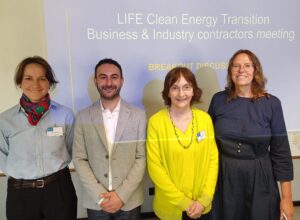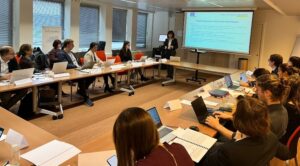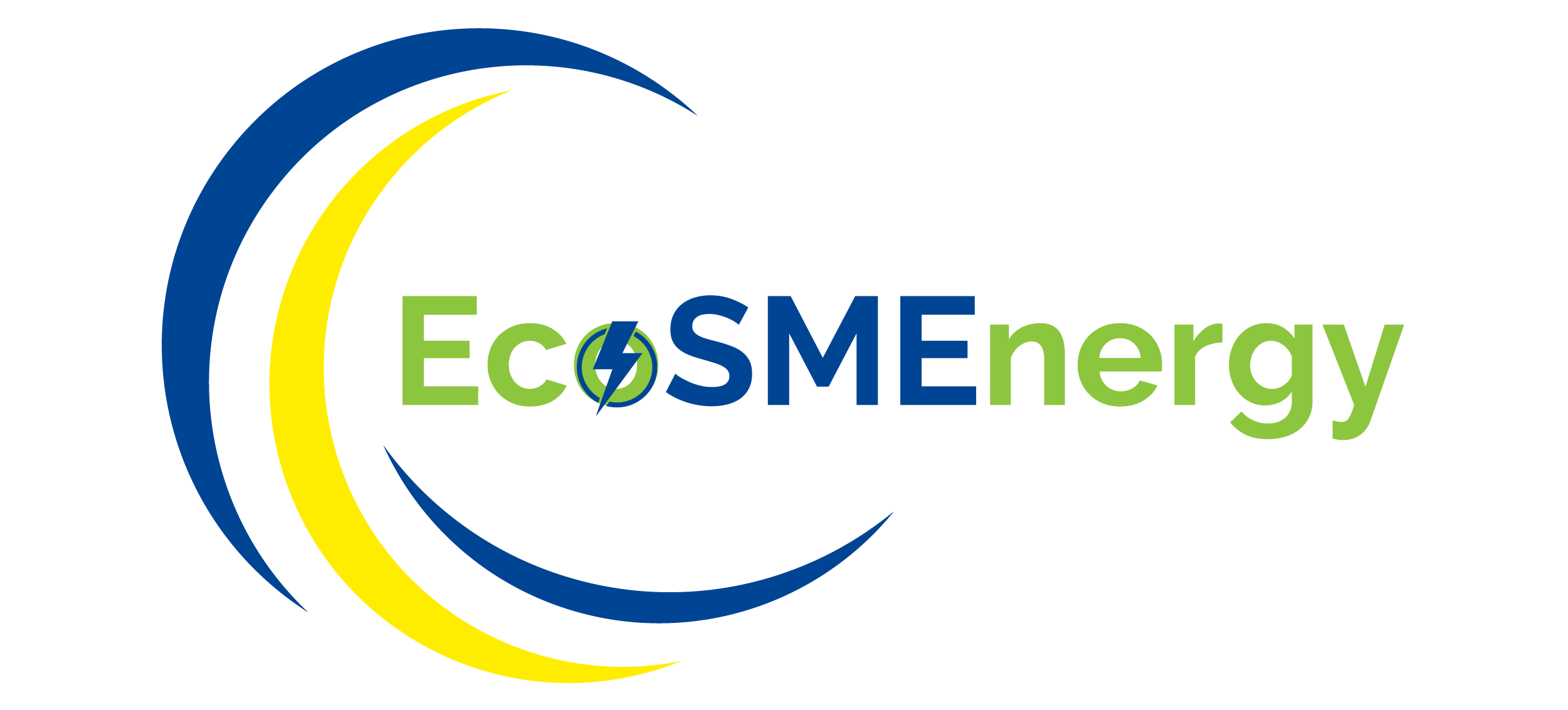LIFE CET projects share insights and impact on energy efficiency
 12 March 2025 – On 10-11 March, the European Climate, Infrastructure and Environment Executive Agency – CINEA – gathered in Brussels all the LIFE CET projects with the objective of sharing knowledge on the results and lessons learned of projects working on energy efficiency in SMEs.
12 March 2025 – On 10-11 March, the European Climate, Infrastructure and Environment Executive Agency – CINEA – gathered in Brussels all the LIFE CET projects with the objective of sharing knowledge on the results and lessons learned of projects working on energy efficiency in SMEs.
During the event, CINEA offered an overview on the latest policy developments within the framework of the Green Deal and offered the different project representatives the opportunity to exchange with and learn from each other.
The EcoSMEnergy project was represented by Birgit Arens from Eurochambres (project coordinator), Linda Lapukka from the Latvian Chamber of Commerce and Industry and Claudia Julius from Senercon.
Helping SMEs transition to energy efficient operations
 28 November 2024 – On 26 and 27 November, Eurochambres hosted the kick-off meeting of the EcoSMEnergy project in Brussels. This brought together representatives from the 12 European partners and the European Climate, Infrastructure and Environment Executive Agency Environment Executive Agency (CINEA) to launch the initiative.
28 November 2024 – On 26 and 27 November, Eurochambres hosted the kick-off meeting of the EcoSMEnergy project in Brussels. This brought together representatives from the 12 European partners and the European Climate, Infrastructure and Environment Executive Agency Environment Executive Agency (CINEA) to launch the initiative.
The project focuses on fostering an energy-efficient culture within specific sectors, including chemicals, pharmaceuticals, rubber and plastic products, and fabricated metal products. By providing services such as energy auditing, real-time energy monitoring tools, and comprehensive training workshops, EcoSMEnergy aims to equip SME staff with the necessary skills to manage energy efficiently, contributing to enhanced competitiveness and ultimately local economic growth, job retention, and the EU’s broader climate action goals.
Co-funded by the European Union and coordinated by Eurochambres, the project aims to engage over 500 companies in energy management initiatives. It will directly support 20 SMEs in conducting energy audits, train more than 250 staff members, and help 80 businesses implement Energy Management Systems. Through these activities, EcoSMEnergy seeks to enhance energy efficiency, reduce operational costs, and promote sustainability, supporting SMEs in their transition to more energy-efficient operations while aligning with EU climate objectives.
